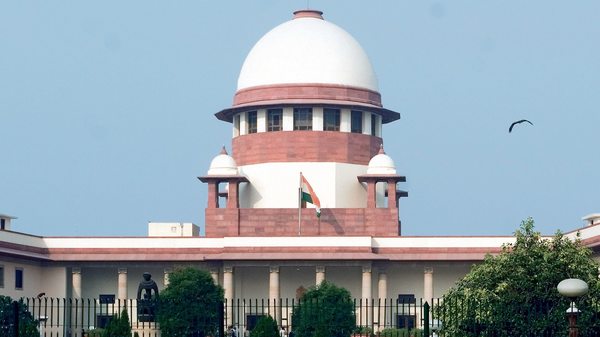Senior advocate, Rajeev Dhavan, who represents lead petitioner M Siddiq and the All India Sunni Waqf Board in the Ayodhya case, and has been appearing in the matter since it began, had, last week, petitioned the Court stating that he received a letter from a retired education officer, threatening him for appearing for the Muslim parties.

The Supreme Court Tuesday issued notices to two persons for reportedly threatening senior advocate Rajeev Dhavan, who is representing Muslim parties in the Ram Janmabhoomi-Babri Masjid land dispute case. The court issued these notices following a contempt plea filed by Dhavan. “Notice,” said the five-judge Constitution bench headed by Chief Justice Ranjan Gogoi at the start of hearing on 18th day in the land dispute case. The bench has put up contempt pleas for hearing after two weeks.
Rajeev Dhavan, who represents lead petitioner M Siddiq and the All India Sunni Waqf Board in the Ayodhya case, has said that he received a letter on August 14, 2019, from N Shanmugam, a retired education officer, threatening him for appearing for the Muslim parties. He also alleged that he has been accosted both at home and in the court premises by several people, news agency PTI reported. A second contempt petition had already been filed by Dhavan against a resident of Rajasthan, Sanjay Kalal Bajrangi, for sending him a WhatsApp message, which, the senior advocate has said, was also an attempt to interfere with the administration of justice before the apex court.
In his plea, Rajeev Dhawan said that by sending the letter the alleged contemnor has committed criminal contempt because “he is intimidating a senior advocate who is appearing for a party/parties before the apex court and discharging his duties as a senior advocate and he ought not to have sent such a letter.”
“Exercise suo motu powers under Article 129 of the Constitution of India and Section 15 of the Contempt of Courts Act taking cognizance of the criminal contempt on the basis of the facts placed on record against the contemnor/opposite party for committing criminal contempt,” the plea said.